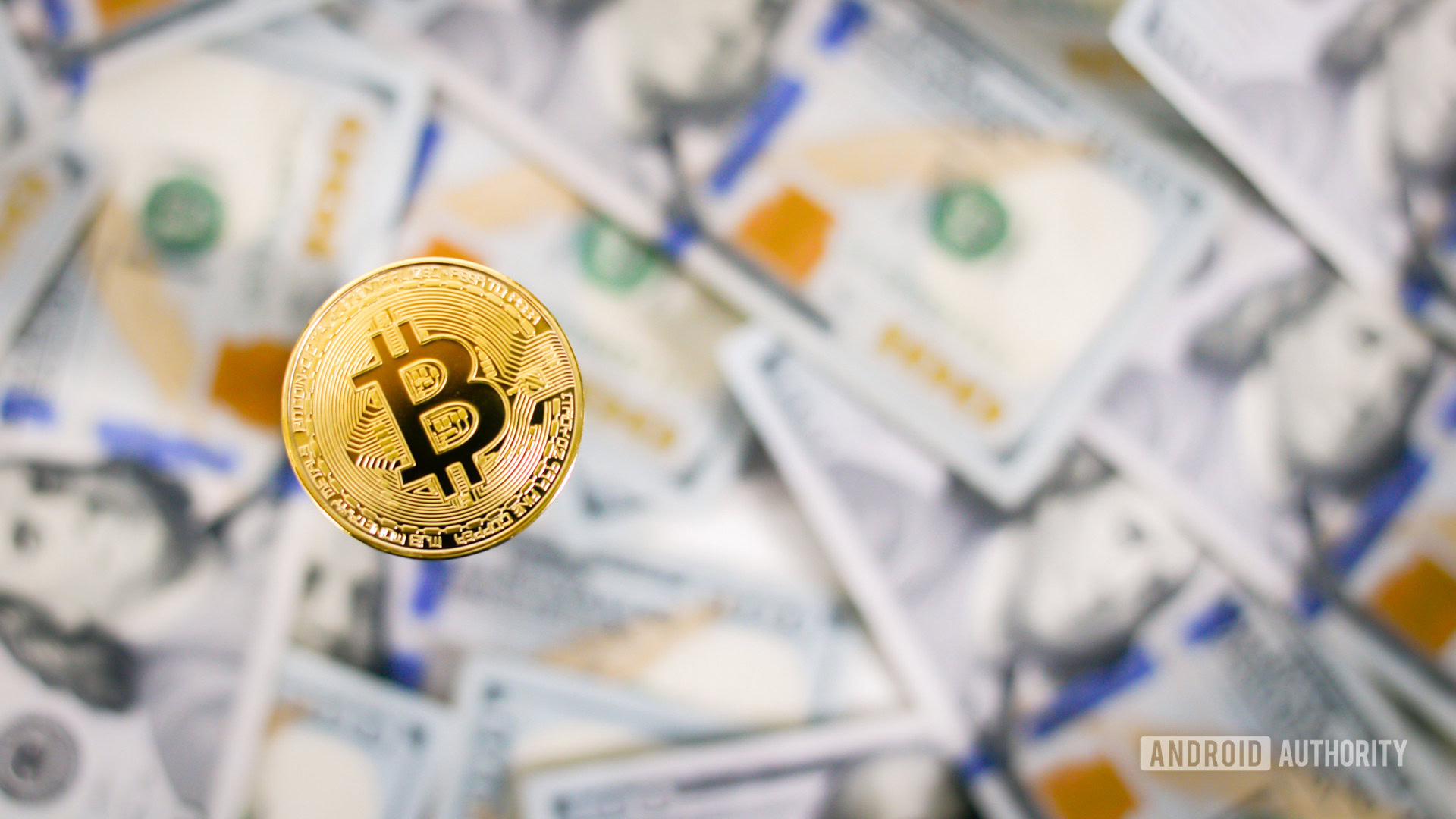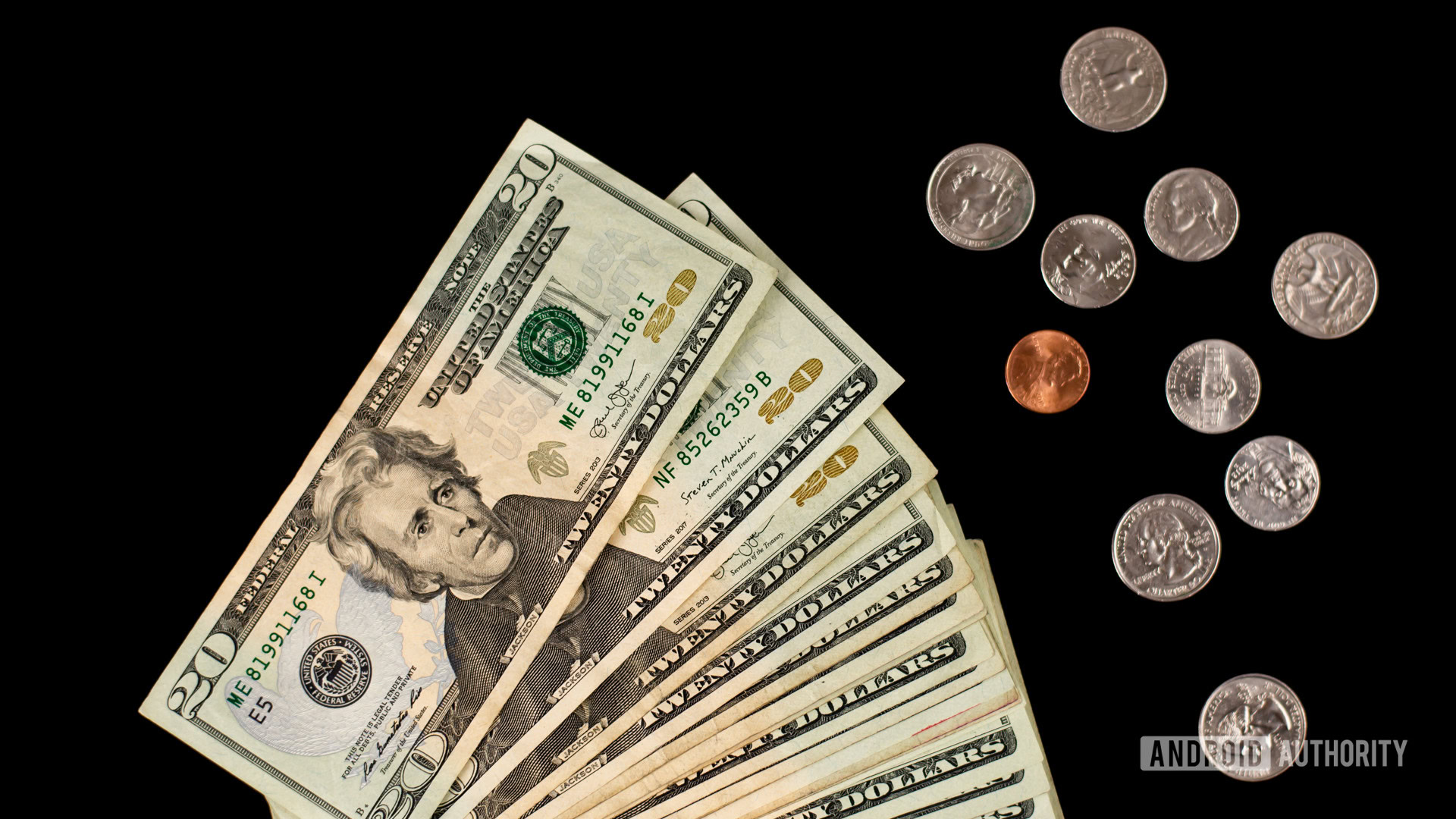Edgar Cervantes / Android Authority
Are you looking to find the best peer-to-peer money transfer app? Cash App and Venmo are two of the most popular ones, thanks to their ease of use, easy set-ups, and much more casual nature. Which is the best option, though? In this Cash App vs Venmo comparison, we’ll go over each platform’s features, fees, business offerings, and more. Let’s get right to the money.
Cash App vs Venmo: At a glance
Before digging deeper, let’s look at some of the base differences between Cash App vs Venmo.
- Venmo offers a social aspect, in which you can choose to share who you’re sending money to, and how much. This can include fun text, emojis, and more. Cash App is more private.
- Both Cash App and Venmo can offer passthrough FDIC insurance if you use your account a certain way. Most basic users will not benefit from this, though. It’s not recommended to hold money in either app for long periods unless you know you’re getting FDIC insurance.
- You can use Cash App and Venmo to buy certain cryptocurrencies. Additionally, Cash App offers stock investing, which Venmo lacks.
- Cash App and Venmo offer other financial features like debit cards, check cashing, offers, tax documentation, and more. There are some key differences between them, though.
- Business accounts available for both platforms.
- Fees are also slightly different.
Keep reading to know more about Cash App vs Venmo and how they differ from each other.
| Cash App | Venmo | |
|---|---|---|
|
General usage |
Cash App
Social sharing |
Venmo
More straightforward, simpler navigation
Routing and account number only for direct deposit |
|
Partnered banks |
Cash App
Sutton Bank |
Venmo
Wells Fargo Bank |
|
FDIC insurance? |
Cash App
Yes, if you sign up for a Cash Card |
Venmo
Yes, if you sign up for direct deposit or cash a check |
|
Investing tools |
Cash App
Stocks |
Venmo
Bitcoin |
|
Can you deposit paper money to it? |
Cash App
Yes, at partnered popular retailer locations |
Venmo
No |
|
Credit available |
Cash App
A limited amount of users can access Cash App loans |
Venmo
Venmo Credit Card |
|
Business accounts |
Cash App
Yes |
Venmo
Yes |
Cash App pros and cons
Pros:
- Simpler interface
- More private
- More comprehensive banking features
- You can invest in stocks
- FDIC insurance available for Cash Card users
Cons:
- More fees
- Only Bitcoin available for crypto purchases
Venmo pros and cons
Pros:
- More fun and social
- More crypto options available
- Credit card available
- FDIC insurance available for direct deposit and check cashing users
Cons:
- The app is a bit more confusing
- Banking features are more limited
Cash App vs Venmo: Features

Edgar Cervantes / Android Authority
Cash App vs Venmo offer some overlapping features, such as sending money to others using your bank, debit card, or credit card. But they’re also pretty different in many ways. You may want to take advantage of both, but if you need to pick one for simplicity, here are the things you should know.
General usage
By nature, Cash App is a much more serious app. It is more private, doesn’t share you transactions with anyone, and has a much more serious tone to it. It goes straight to the point, and you can use it as a general hub for things like investing, saving, and actually managing your money.
On the other side, Venmo has a very strong social aspect to it. You can choose to share all your activity with others, and that’s part of the lure. Your feed can show what others are sharing money for, what restaurants they’re splitting checks for, and more. People like to add emojis; you can like entries or comment on them. It’s a much more fun and casual application.
Banking
There are major differences in how Cash App vs Venmo handle banking features. Neither are really banks, but you get some banking features thanks to their partner banks.
Cash App partners with Sutton Bank and Lincoln Savings Bank for different purposes. They provide a routing and account number, as well as direct deposit, ACH payments, check deposits, and pretty much everything a typical bank account offers. You even get FDIC passthrough insurance as long as you sign up for a Cash Card or are a sponsor of a sponsored account. In Cash App’s case, FDIC insurance covers up to $250,000.
Cash App and Venmo offer passthrough FDIC insurance, but only for some users.
Venmo, on the other hand, works with Wells Fargo Bank and The Bancorp Bank. It also provides a routing and account number, but it can only be used for direct deposit. So far, this account can’t be used for ACH payments and other common banking uses. The good news is you also get passthrough FDIC insurance up to $250,000 as long as you have direct deposit or deposit the money through a check.
Investing

Edgar Cervantes / Android Authority
There is a clear winner in the Cash App vs Venmo battle, at least when it comes to investing. Cash App makes it possible to invest in stocks, for starters. Additionally, you can use the application to buy Bitcoin. There’s also a savings feature, but it doesn’t do much other than separate the money you want to set aside. It doesn’t generate yields or provide any extra benefits.
Venmo offers no stocks or savings. It does, however, allow you to buy crypto. And it happens to offer more options than just Bitcoin. You can also use Venmo to purchase Ethereum, Litecoin, and Bitcoin Cash. Though, arguably, most people only really care for Bitcoin and Ethereum, anyways. Regardless, it’s nice to see more options.
Other features
There are some other minor differences regarding what you can and can’t do with Cash App vs Venmo. For example, Cash App allows depositing paper money through a retailer, while Venmo relies solely on the app. You can withdraw money from both at an ATM, though, given you have the debit card for your service of choice.
One cool thing about Venmo is that it offers a credit card, which may be a pretty nice one, depending on where your credit stands. It has no annual fee and automatically bases cashback percentages on your spending. You will get 3% on your top spending category, 2% on the second, and 1% on everything else. Cash App offers no credit card, but some people can get loans. We have a complete guide on borrowing money from Cash App for all the details.
Cash App vs Venmo: Fees

Edgar Cervantes / Android Authority
Free things are hard to come by, especially in the world of finances. While there are many things the typical user can do without paying fees, at some point, you may have to pay some fees. This is especially the case if you want to take advantage of extra features, or if you want to speed up processes. Let’s go over some of the fee differences between Cash App vs Venmo.
Cash App fees:
- Paper money deposit: $1 (can be up t $5, depending on the merchant)
- Instant transfer: 0.5% to 1.75% ($0.25 minimum)
- Out-of-network ATM withdrawal: $2.50
- In-network ATM withdrawal: $2.50 (waived for 30 days after each direct deposit of at least $300)
- Send from credit card: 3%
- Stock selling TAF fees: $0.000145 per share sold, rounded up to the nearest penny and no greater than $7.27
- Stock selling SEC fee: $8.00 per million dollars of covered sales
- Bitcoin fees: Amount varies by amount. It’s about 2.25% for purchasing $100 worth of Bitcoin, as of the time of this writing.
Venmo fees:
- Instant transfer: 1.75% ($0.25 minimum, $25 maximum)
- Out-of-network ATM withdrawal: $2.50
- Send from credit card: 3%
- Crypto fees: Amount varies by amount. It’s about 2.5% for purchasing $100 worth of Bitcoin, as of the time of this writing.
You should also look at our dedicated posts on Cash App limits and Venmo limits.
Cash App vs Venmo: Fraud protection

While both Cash App and Venmo will try to help you with fraud, scams, and other internet dangers, they aren’t commonly the best at securing your money once you’ve been scammed.
Both are encrypted, offer two-factor authentication for signing in from a new device, and can add a layer of security for entering the app, such as a PIN. Additionally, both will try to detect and block fraudulent activities from happening. Additionally, both claim to have protection against unauthorized transactions, but your mileage may vary. While many can attest to its validity, plenty of reports online claim disputes can get nowhere.
That said, Venmo offers fraud protection for authorized transactions, but this is only for business payments. For example, you can dispute transactions if you purchased something through Cash App and never got the product.
You need to be very careful with Cash App and Venmo transfers, as you may not be able to get your money back.
All that said, you still need to be very careful about using Cash App and Venmo. Neither can guarantee that you will get your money back if you’ve been scammed. This is mainly because scammers try to lure you to send them money. These are peer-to-peer transactions, and if you willingly send anyone money, it’s on you. Of course, you can always try customer support, as well as the authorities.
Ideally, you want to avoid using your balance to pay for things. This is because most credit cards and debit cards will offer stronger protection. You can then make any claims through your credit or debit card provider, instead of Cash App or Venmo.
Cash App vs Venmo: Business features

Lily Katz / Android Authority
Because payment services like Cash App and Venmo are so popular, they’ve also become great tools for businesses. Both offer business accounts, which can facilitate transactions for goods and services, as well as offer help with tax-filing documentation.
In the case of Venmo, businesses also get the added benefit of getting purchase protection for all sales, as well as for unauthorized transactions.
Cash App and Venmo will provide a 1099-K form each year, summarizing all transactions for easy tax filing.
By the way, fees are different too. Cash for Business will automatically deduct a 2.75% fee for all payments received. They will, however, remove Cash Out Instant Deposit fees. Meanwhile, Venmo business accounts will pay a 1.9% fee plus $0.10 for all incoming payments. This percentage is raised to 2.29% plus $0.10 per transaction if you use contactless payments.
In either case, business accounts aren’t really meant to provide more features. Some may actually see it as a downgrade, due to the higher fees. The idea is mainly to keep personal and business expenses separate.
Cash App vs Venmo: Which payment service is right for you?
Ideally, you want to use a mixture of Cash App and Venmo, as they offer some benefits over the other. Cash App is better as a serious financial app. It’s more private, and even provides more serious tools. It can be a more reliable replacement to an actual bank account, as you get a real bank account with the app, bundled with FDIC insurance, ACH payments, and more. Additionally, you can use it for investing in stocks, as well as crypto.
Ideally, you want to use a mixture of Cash App and Venmo.
That said, Cash App has more fees and is usually a bit more expensive. Venmo has a more straightforward set of fees. Some of you may also like the social elements associated with it. It makes handling money more fun and interactive. If you’re into crypto, it has a few more options aside from Bitcoin, and you can even take advantage of the credit card, if you choose to.
If you’re actually using these apps for their main purpose, which is peer-to-peer transactions, you should probably go with the one where all other users go. According to Business of Apps, Cash App had over 51 million users as of 2022, while Venmo pushed ahead with over 78 million. Chances are more of your friends are using Venmo instead of Cash App.
FAQs
There are a few ways to transfer money between Cash App and Venmo. The first one is by linking a common bank account to both. You can then send money from either account to your bank, then to the other app.
Also, because Cash App can work like a bank account, you can add it to Venmo as one. It’s then possible to add money to Venmo using your Cash App bank account as a payment. Sadly, the same doesn’t work the other way around.
Additionally, you can connect the Cash Card as a payment method in Venmo. Many also claim to be able to add the Venmo card as a payment method in Cash App.
Cash App has partnered with two banks. These are Sutton Bank and Lincoln Savings Bank.
Venmo has partnered with two banks. These are Wells Fargo Bank and The Bancorp Bank.
Venmo is free to sign up for and keep an account with. That said, there are some fees attached to a few specific actions. We have a dedicated post with all the Venmo fees detailed.
There is a way to get loans from Cash App, but these are currently not available for all users. There are some ways to increase the chances of getting the feature. Take a look at our guide on how to borrow money from Cash App for more details.
There is no direct way to send money from PayPal to Cash App or Venmo. This is pretty odd, especially in Venmo’s case, because PayPal owns Venmo. The most straightforward way to do this is to send your money from PayPal to your bank, then to either Cash App or Venmo.






